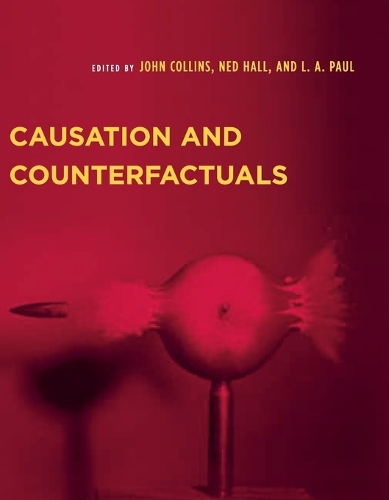
Causation and Counterfactuals
(Paperback)
Publishing Details
Causation and Counterfactuals
By (Author) John Collins
Edited by Ned Hall
Edited by L. A. Paul
MIT Press Ltd
Bradford Books
25th June 2004
United States
Classifications
Professional and Scholarly
Non Fiction
122
Physical Properties
Paperback
480
Width 191mm, Height 235mm, Spine 25mm
771g
Description
One philosophical approach to causation sees counterfactual dependence as the key to the explanation of causal facts: for example, events c (the cause) and e (the effect) both occur, but had c not occurred, e would not have occurred either. The counterfactual analysis of causation became a focus of philosophical debate after the 1973 publication of the late David Lewis's groundbreaking paper, "Causation," which argues against the previously accepted "regularity" analysis and in favour of what he called the "promising alternative" of the counterfactual analysis. Thirty years after Lewis's paper, this book brings together some of the most important recent work connecting - or, in some cases, disputing the connection between - counterfactuals and causation, including the complete version of Lewis's Whitehead lectures, "Causation as Influence," a major reworking of his original paper. Also included is a more recent essay by Lewis, "Void and Object," on causation by omission. Several of the essays first appeared in a special issue of the Journal of Philosophy, but most, including the unabridged version of "Causation as Influence," are published for the first time or in updated forms.
Author Bio
John Collins is Associate Professor of Philosophy at Columbia University. Ned Hall is Associate Professor of Philosophy at MIT. L. A. Paul is Assistant Professor of Philosophy at the University of Arizona and Research Fellow at the Australian National University.
